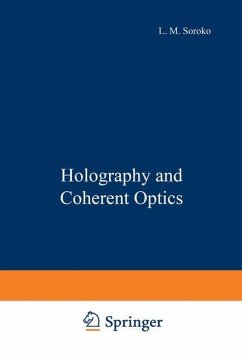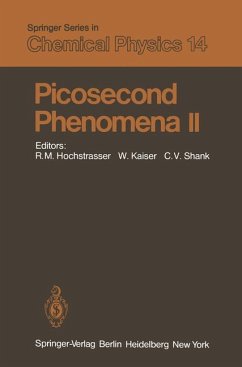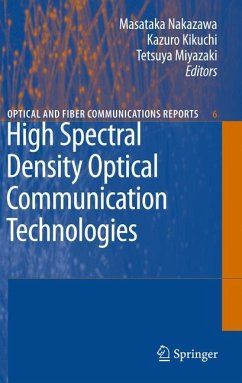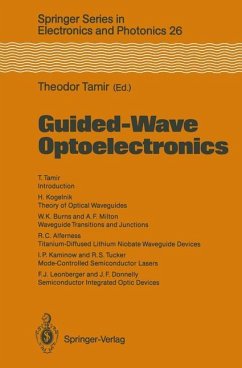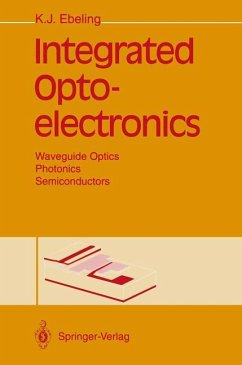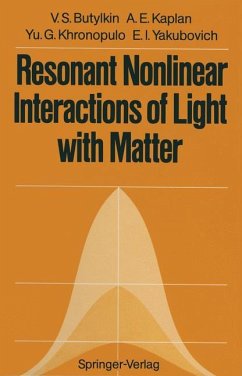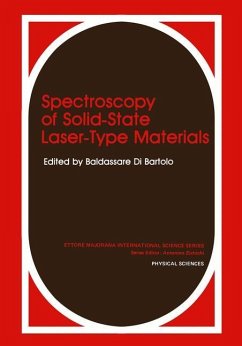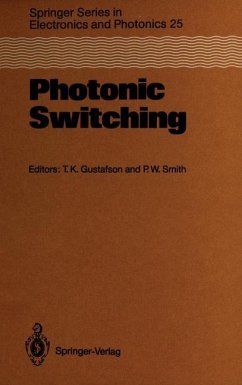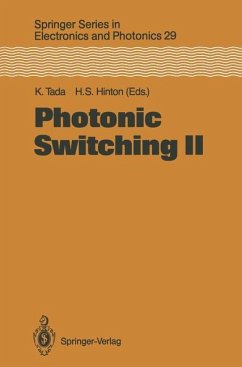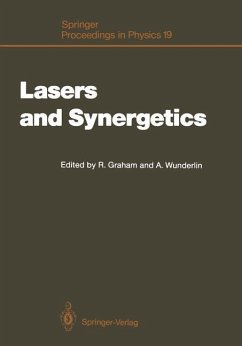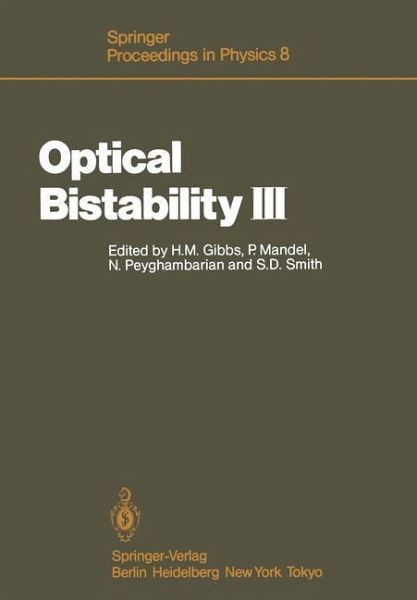
Optical Bistability III
Proceedings of the Topical Meeting, Tucson, Arizona, Dezember 2-4, 1985
Herausgegeben von Gibbs, Hyatt M.; Mandel, Paul; Peyghambarian, Nasser; Smith, S. Desmond
Versandkostenfrei!
Versandfertig in 1-2 Wochen
77,99 €
inkl. MwSt.

PAYBACK Punkte
39 °P sammeln!
This is a collection of papers presented at the Topical Meeting on Optical BistabiJity (OB3) held December 2-4,1985 in Tucson, Arizona. The increase in attendance to almost 200 shows that interest continues to grow in the sub ject of optical bistability (OB) and its wider implications both in application to "optical digital computing" and to basic physics, notably instabilities and spatial effects. The maturing of the field is evidenced by the fact that the number of experimental papers has caught up with the number of theoretical ones. These trends were already apparent in OB2 and the 1984 Ro...
This is a collection of papers presented at the Topical Meeting on Optical BistabiJity (OB3) held December 2-4,1985 in Tucson, Arizona. The increase in attendance to almost 200 shows that interest continues to grow in the sub ject of optical bistability (OB) and its wider implications both in application to "optical digital computing" and to basic physics, notably instabilities and spatial effects. The maturing of the field is evidenced by the fact that the number of experimental papers has caught up with the number of theoretical ones. These trends were already apparent in OB2 and the 1984 Royal Society Meeting on Optical Bistabilty, Dynamical Nonlinearity and Photonic Logic. Progress in experiment.al topics included guided-wave OB, mostly ther mal, picol'econd switching, studies on quite a number of new materials, op tical computing, and pattern recognition using arrays of nonlinear etalons. Theoretical progress ranged from rather practical calculations on device per formance, noise effects on switching, and transverse and longitudinal spatial effects to fundamental studies of dynamics, instabilities, and chaos. The Conference also included both theoretical ideas on optical computer archit.ecture and intrinsic OB circuit elements such as as full adder as well as t.he first demonstration of an intrinsic optical circuit in the form of a cas cadable loop with bufferd st.ores. A first demostration of a simple pattern recognition algorithm using 2-D arrays of spots on a ZnSe int.erference filter was reported.





